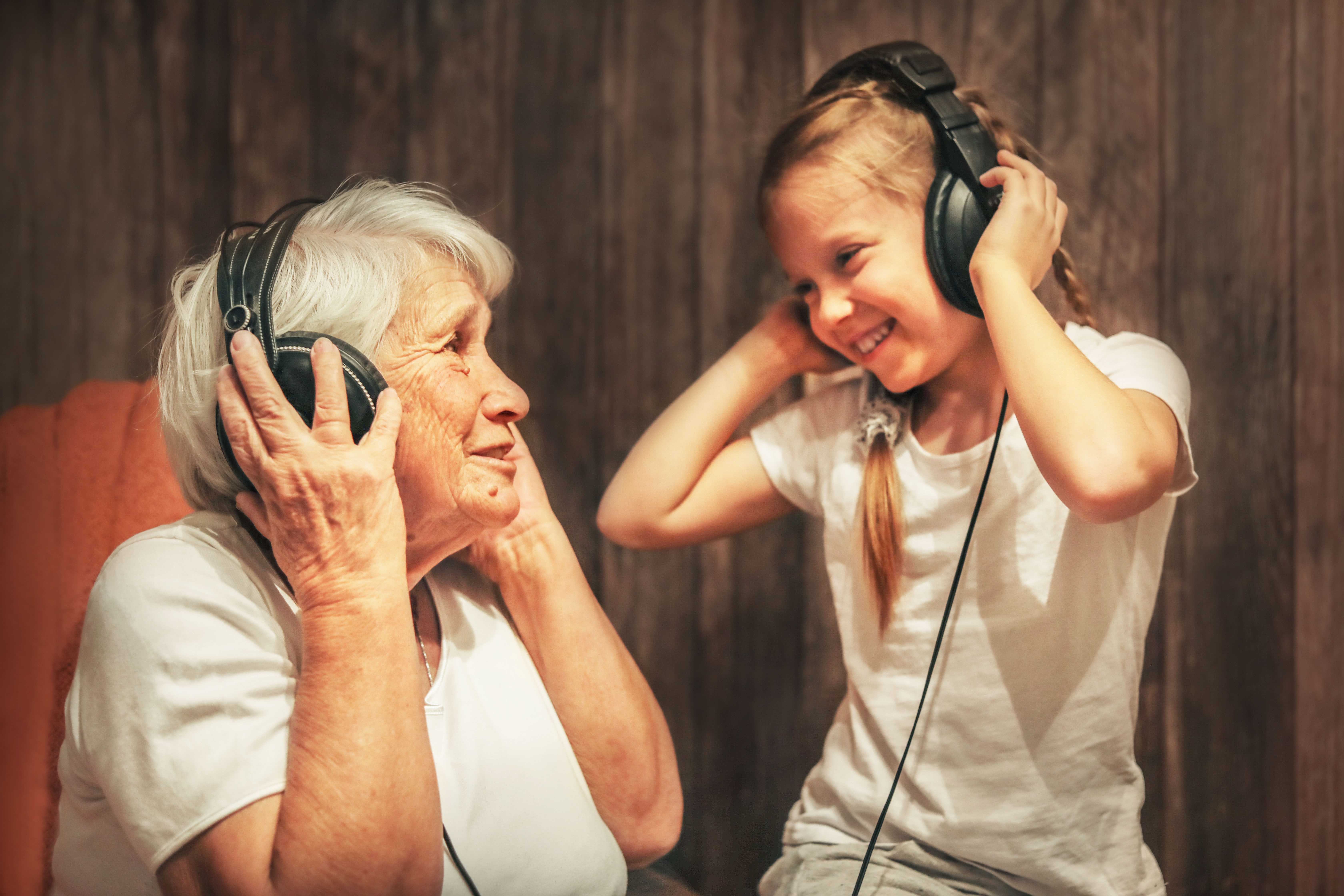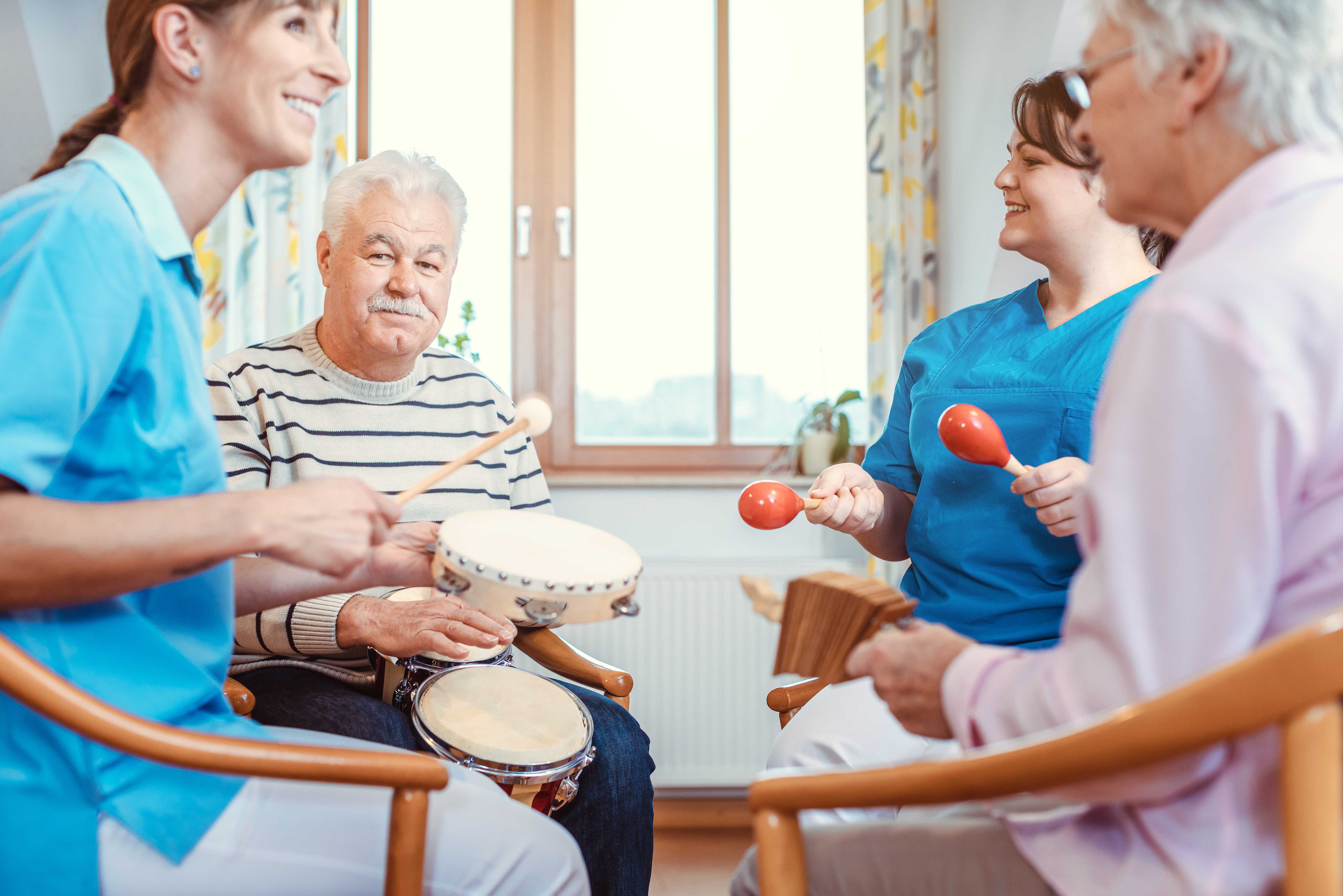Cognitive Benefits of Music in Seniors
by Melrose GardensThe elderly population is growing rapidly. Memory is one of the mental skills most negatively affected by ageing. Proposing interventions that improve cognitive functioning or strategies to delay the onset of age-related disability are the subject of our species' significant biopsychosocial health interest.
Music is often described as having healing powers. Studies have shown that music can positively affect our physiology, helping in cognitive gain and healthy ageing. Listening to songs or music can provide emotional benefits for people having memory loss. Music can reduce anxiety, relieve stress and reduce anger/frustration.
Effects of Music on the Mind
1. Improving Cognitive Skills
Music is a source of comfort and pleasure, but it also has many psychological benefits. Music Therapy is a technique to promote emotional health and boost psychological wellness.
Research suggests that background music played when someone is busy in another activity can improve cognitive responses in seniors. Playing upbeat music can improve the processing speed while giving benefits to memory.
2. Reducing Stress
Listening to music has effects on the human stress response, especially on the Autonomic Nervous System. Listening to music reduces Stress, improves symptoms of depression, and enhances productivity, ultimately improving a person’s quality of life.
3. Memory Improvement and Treating Mental Disorders
When older adults have dementia, it can often be challenging to find methods to stimulate their memory and help them communicate. Therapies like music have been found to play an influential role in slowing down cognitive decline by reducing the level of stress hormone in the body (i.e., Cortisol) and enhancing the ranks of other hormones associated with pleasure such as dopamine and immunity as serotonin.

Effects of Music on Body
‣ It improves cardiac functioning by maintaining blood pressure in the normal range.
‣ It decreases fatigue and tiredness.
‣ It boosts exercise performance resulting in better health
‣ It can improve response to pain and work out more efficiently.
Music and Dementia
Music perception, musical senses, and musical memory can survive long after other forms of memory and mental function have disappeared. Regarding Parkinson’s disease, music therapy can lead to smooth motor flow, such as dancing. But when the music stops, so does the motor performance. In dementia, music can improve mood, function, and other mental functions, continuing for hours and days. Music also does not require you to be accustomed to making these improvements, and one does not need to have official musical knowledge to enjoy and respond to it at a deeper level. Listening to traditional music can result in pleasant smiles or dancing even when communication is lost. Singing has also been shown to improve performance, emotions, and mental performance in some forms of dementia.
Adding Music into Daily Life of Seniors with Dementia
By adding music into their daily lives, seniors can give their quality of life the much-needed energy. Older adults benefit from music that stimulates emotions, restores old memories, entertains them, promotes fun, and promotes good mental and physical health. If you are a caregiver, you can help choose music that enhances the quality of life of adults by selecting a theme that is:
- Positive/Encouraging
- Entertaining
- Local and familiar
The good thing about music is that it can be used in almost every aspect of life. To ensure that your older loved one receives a daily dose of upbeat songs, consider playing some fun songs when your senior loved one is
- Preparing for Next Day
- Exercising
- Performing simple household chores or cooking
- Socializing with friends and family
- Thinking about old memories
Through the power of music, the connection of your elderly loved one, the memory, the interaction with people - and above all, the quality of their life - will significantly improve.

Tips to Use Music for A Dementia Patient
Think about your loved one's preferences, their favourite genre/bands or singers.
- Set the mood by playing a soothing song according to a loved one's taste
- Avoid overstimulation by turning off other noisy devices
- Encourage movement by helping the patient to clap/beat or dance
- Sing along with your loved one
- Pay attention to your loved one's response by playing their favourite songs on loop.
Although more research needs to be done to understand precisely how music can be used to treat illnesses and diseases that cause cognitive decline, many proven benefits are associated with music therapy for seniors in assisted living facilities.
We at Melrose Gardens assisted living facility use many methods and modalities to customize the care of our residents. Music, and activities associated with music, along with other fun and beneficial options, are used to maintain the needs of each individual resident. Please call Melrose Gardens assisted living facility in Los Angeles today to speak to a representative to address any questions and arrange a tour of our beautiful facility grounds. You will be happy you did! Take care, and look forward to hearing from you.
Please Contact Us
960 North Martel Ave. Los Angeles, CA 90046
